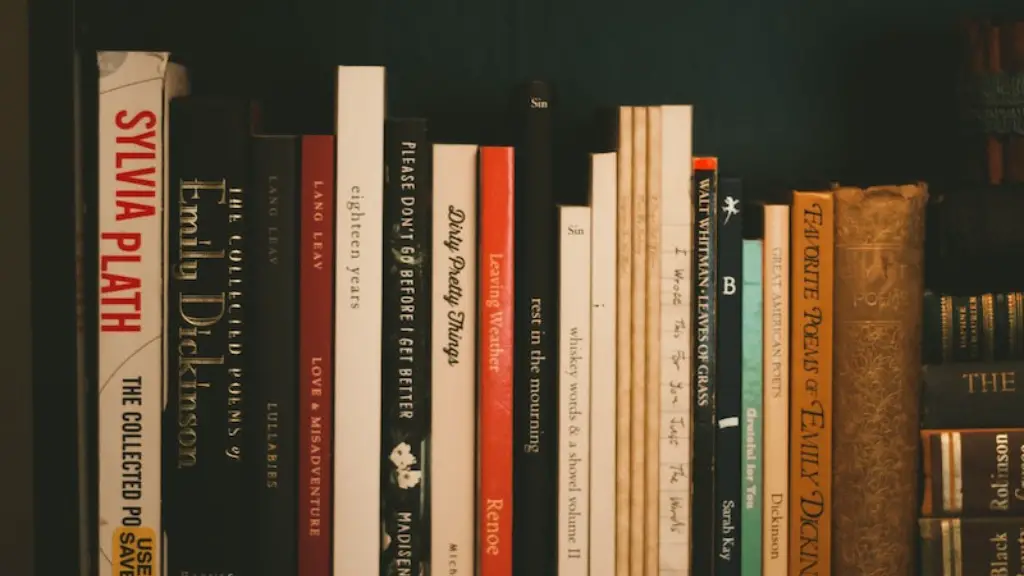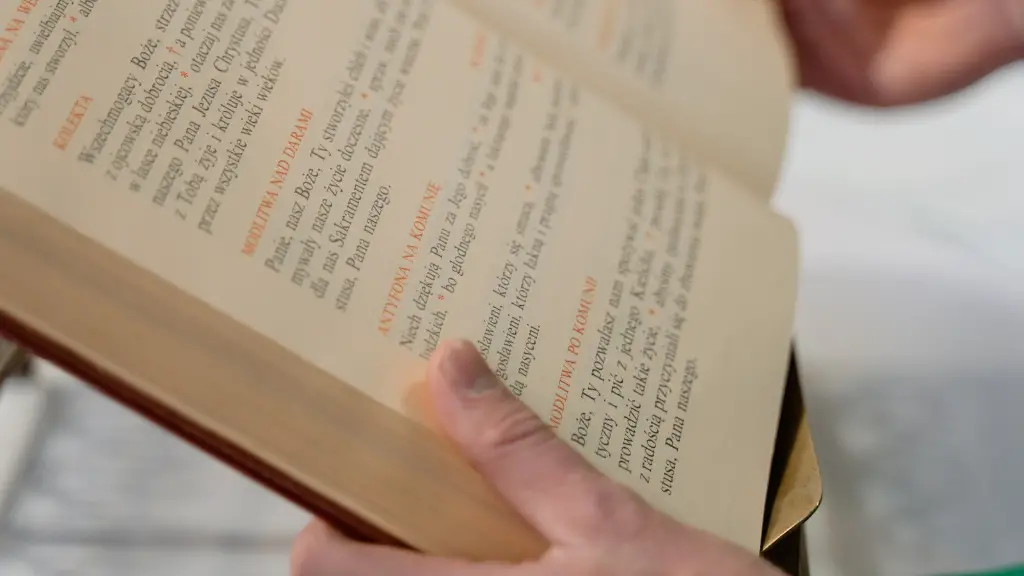Walt Whitman, the celebrated American poet whose works are seen as Groundbreaking in American literature, has much to say about miracles. In his poem, Miracles, Whitman explores his own spiritual journey of connecting with something larger than himself, which he perceives as miracle-working power.
In his poem, he speaks to the idea of miracles being present every single day and provides insight into his thoughts on the topic. He uses a series of metaphorical examples to convey his thoughts on how miracles come about, and how we can transcend our physical limitations to experience the true power of the miraculous.
Whitman speaks to the concept of miracles being present all around us, if we just take a moment to stop and notice them. He describes seeing ordinary moments as amazing, beautiful miracles. He encourages us to take the time to appreciate these everyday moments, as they can reveal a greater sense of meaning and connection to the divine.
Whitman also speaks to the power of belief in miracles. He alludes to the idea that having faith, even small faith, that miracles can exist can have a profound impact on our lives. He speaks to the idea that with faith, we can experience miracles, even if they are not necessarily physical manifestations of divine intervention.
Whitman also speaks to the idea that miracles are a reflection of the divine, rather than something that is bestowed upon us from an external source. He speaks to the interconnectedness of our existence and how we can access the miraculous by opening ourselves up to divine grace.
Ultimately, Whitman does not view miracles as a physical manifestation of divine intervention, but rather as a state of being, a way for us to connect with something greater than ourselves, and to allow ourselves the opportunity to experience the miracle of life. Through his work, Whitman encourages us to open ourselves up to the everyday miracles all around us, so that we can appreciate the beauty and mystery found in the ordinary.
Gratitude as a Miracle
Walt Whitman also speaks to the idea that miracles can come as a result of gratitude. He suggests that, by maintaining a sense of gratitude and appreciation for the blessings and opportunities presented to us each day, we can begin to experience the power of miracles in our lives.
Whitman speaks to the power of expressing gratitude and allowing the practice to become a part of our daily life. He insists that with this practice, our appreciation and understanding of the beauty and magnificence of life can be heightened, allowing us to access a sense of peace and awareness that transcends our physical limitations.
Whitman also speaks to the concept of giving thanks as a way to cultivate an attitude of appreciation for the simple things in life, and to experience the miracles that lie just beyond our physical understanding and sight.
Ultimately, Whitman encourages us to embrace gratitude as a way to experience greater joy and connection to something larger than ourselves, as he believes that miracles can be experienced through this practice of thanksgiving.
Miracles as Everyday Struggles
Whitman also speaks to the idea that miracles can be found in the struggles of life. He encourages us to be resilient when faced with hardships and to find solace and strength in moments of struggle. He speaks to the idea that while life can be hard, it also can be an incredible opportunity to experience the beauty of life and to recognize the miracles found in our struggles.
Whitman speaks to the idea that it’s in the moments of hardship and struggle that we can access the power of the miraculous. He suggests that there is something to be gained from our struggles, and that with faith, hope, and resilience, we can come to recognize the joy and beauty found in life. By being open to the miraculous potential of our struggles, we can come to a place of gratitude, understanding, and peace.
Ultimately, Whitman speaks to the concept of miracles as not just something from a higher power, but as something found within our daily lives and personal struggles. He speaks to the idea that with awareness and openness, we can recognize the miracles all around us and access them through our everyday lives.
Miracles as Divine Connection
Finally, Whitman speaks to the concept of miracles as a direct reflection of divine connection. He insists that miracles can be experienced through direct connection with a higher power, albeit in different forms.
Whitman speaks to the idea that miracles can come in many forms, from moments of dazzling beauty, to moments of being guided and supported by something outside of ourselves. He speaks to the idea that miracles can be experienced in both spiritual and physical forms, and that, if we open our hearts and minds to the experience, we can find miracles in every aspect of our lives.
Ultimately, Whitman speaks to the concept of miracles as divine connection. He believes that there is an interconnectedness between our physical and spiritual realms, and that with faith and openness, we can find miracles in our everyday lives.
Conclusion
Walt Whitman’s poem, Miracles, provides insight into his belief that miracles are all around us, if we just take the time to stop and notice them. He speaks to the power of belief and gratitude as a way to access the power of the miraculous, and encourages us to recognize the divine connection we can experience through our struggles. Ultimately, Whitman encourages us to be open to the miracles present in our everyday lives and to appreciate the beauty and mystery found in the ordinary.




